First of all, the act of donating blood helps create a positive mental state, the blood donor feels proud and happy because they know that their work can save someone. The blood from a donor will be separated into many components according to the patient's needs. Those components can be transfused to different recipients. In particular, donating blood is a manifestation of good health and good blood quality. That belief is very beneficial for blood donors, helping blood donors to be confident in their own health.
Students of Buon Ma Thuot University of Medicine and Pharmacy (Dak Lak) participate in blood donation activities - Photo: Huu Tu
According to Dr. Ngo Manh Quan (Bach Mai Hospital), donating blood helps reduce iron overload in the body. According to research, every day in the body, about 200 - 400 billion red blood cells die naturally and are replaced by new red blood cells. The amount of hemoglobin destroyed will release a certain amount of iron, part of which is reabsorbed to create new blood, part of which is excreted and part of which remains in the body as a reserve. Donating blood reduces excess iron and regular blood donors will help the iron excretion process go smoothly.
Dr. Quan added that donating blood helps increase the creation of new blood, while also helping to detoxify and reduce the burden of degeneration on the body. Donating blood is a "motivation" for the body to create new blood, especially red blood cells to compensate for the amount of red blood cells donated, thereby stimulating the bone marrow to increase blood production.
In addition, according to Dr. Quan, donating blood reduces the risk of stroke. The presence of too much iron in the blood promotes the oxidation of cholesterol. The products of this process are deposited in the subendothelial layer of blood vessels, increasing the risk of atherosclerotic plaques. This is one of the causes of heart attacks and strokes.
Donating blood also helps increase the process of burning calories and supports weight loss. It is estimated that each 450 ml donation helps burn about 650 calories in the body and reduces cholesterol in the blood. This is a useful measure in weight loss in people who are above average body weight.
Blood donors are screened, given health advice, and helped to proactively monitor and self-monitor their health. Each time they donate blood, donors will undergo a preliminary check-up, have their blood pressure and heart rate measured, and be tested before donating blood. Donated blood is screened for hepatitis B, hepatitis C, HIV, syphilis, etc.
In case of an unfortunate event, blood donors who need to receive blood, must present a voluntary blood donation certificate and will be reimbursed for free at public health facilities nationwide. In addition, the Ministry of Health has implemented gifts for blood donors in the form of testing packages and health care services.
"Thus, each time you donate blood, you get a health check, helping to warn and detect health risks so that timely measures can be taken. At the same time, for regular blood donors, donating blood will help them monitor their own health," Dr. Quan shared.
Source: https://thanhnien.vn/loi-ich-khong-ngo-cua-hien-mau-185250716171929456.htm


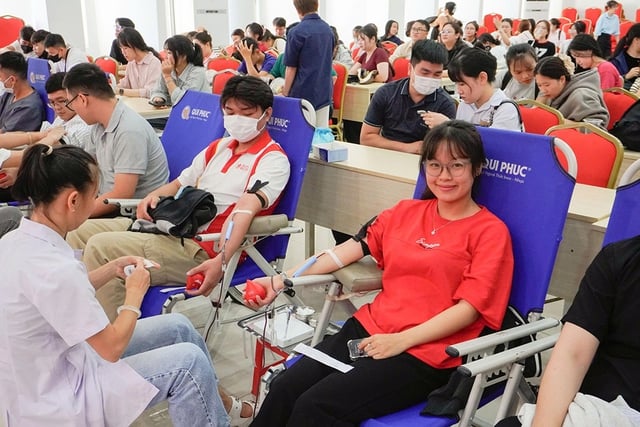
![[Photo] Cat Ba - Green island paradise](/_next/image?url=https%3A%2F%2Fvphoto.vietnam.vn%2Fthumb%2F1200x675%2Fvietnam%2Fresource%2FIMAGE%2F2025%2F12%2F04%2F1764821844074_ndo_br_1-dcbthienduongxanh638-jpg.webp&w=3840&q=75)







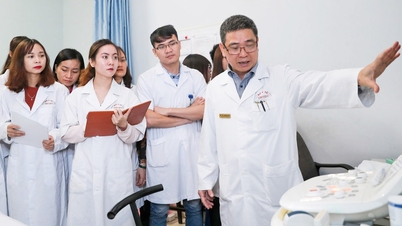






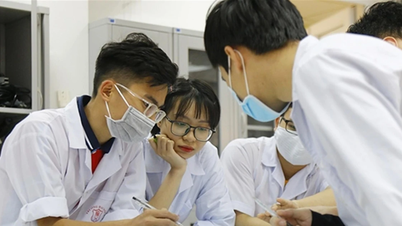

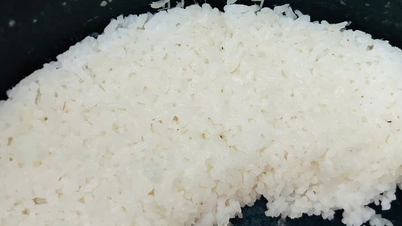












































![[VIMC 40 days of lightning speed] Da Nang Port: Unity - Lightning speed - Breakthrough to the finish line](https://vphoto.vietnam.vn/thumb/402x226/vietnam/resource/IMAGE/2025/12/04/1764833540882_cdn_4-12-25.jpeg)
























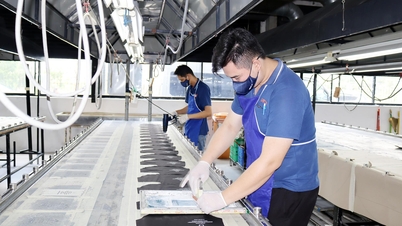





















Comment (0)